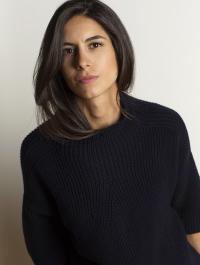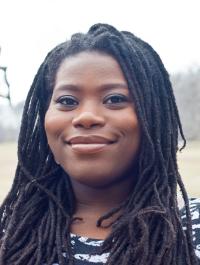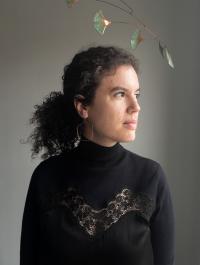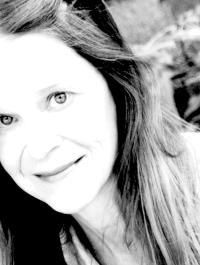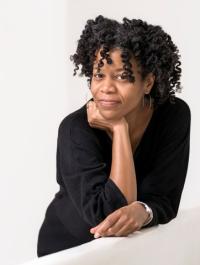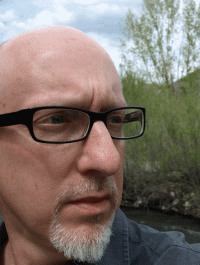In his office in the attic, in his favorite khaki pants,
the Archivist carefully sets down the glass case
of his body so as not to rattle the exhibit of his mind.
He wears gloves to stroke the name on the envelope,
the name written in a florid hand trained by long-ago
love. To live among the dead, the Archivist thinks.
His eyebrows do a little jig. With fingers strange
to his wife, the Archivist traces the name of the street
in the village that burned. The street wears the name of the flower
the Archivist’s mother tucked behind her ear in a photograph
languishing in a desk drawer. The Archivist carries his mind
into each house. Here, the Cook makes love, his hand
brushing flour against his boyfriend’s nipple. There,
the Tailor’s satisfied song of scissors bisecting
a ream of red. A girl whose mouth makes an O,
around which chocolate makes another mouth, runs
through the road. The road which runs through
the Archivist’s blood. The girl is the Archivist’s grandmother
only in that she is a story the Archivist tells
himself about how he got here. Under an oak tree,
two dogs fucking. The girl’s ice cream is melting.
The Archivist’s mind is sticky with history.
Of course, the village burns again. History is
the only road that survives. Downstairs, the Archivist’s daughter
is hungry. He restores the dead to their folders. To live!
The girls’ wails rise through the house like smoke.
